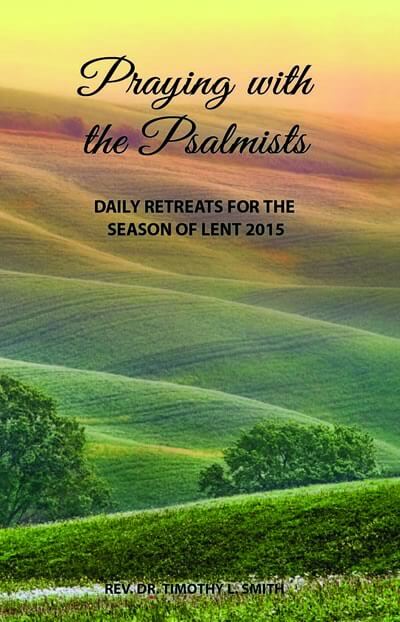 After God’s Own Heart
After God’s Own Heart
Of David. A maskil.
Blessed is the one
whose transgressions are forgiven,
whose sins are covered.
Blessed is the one
whose sin the LORD does not count against them
and in whose spirit is no deceit.
When I kept silent,
my bones wasted away
through my groaning all day long.
For day and night
your hand was heavy on me;
my strength was sapped
as in the heat of summer. Selah
Then I acknowledged my sin to you
and did not cover up my iniquity.
I said, “I will confess
my transgressions to the LORD.”
And you forgave
the guilt of my sin. Selah
Psalm 32:1-5
Today’s psalm text are inspired words intended to make us wise. We know that from David’s superscription in which he calls this psalm “a maskil”. Maskil is a Hebrew word derived from a verb meaning “to be wise, prudent”. So this is a wisdom-song. It can make us wise by telling us the blessing and joy of forgiveness. To be sure this is a psalm about sin and guilt, but even more it is a psalm about God “whose nature and property is ever to have mercy and to forgive.” (The Book of Common Prayer)
Sin-talk has not been popular in our culture for a long time. Too often people who are in the public eye caught in sin show less than sincere contrition. From his own personal experience David tells both the agony of denying sin and the joy of being forgiven: “Blessed is the one whose transgressions are forgiven.”
The real problem in Psalm 32 is not David’s sin, but his refusal to face it and confess it. He is in denial. He is like Martin Luther who said, “I did not want to recognize or acknowledge my sin. I thought I was pious.” (Martin Luther, Luther’s Works, vol. 14) Long before the insights of modern medicine David knows that unacknowledged guilt takes its toll. David’s “hidden and encysted guilt disturbs all of life from deep within and possibly manifests itself in the process of physical illness.” (Hans-Joachim Kraus, Psalms 1-59) David says that when he kept “silent” about his sin he felt he was wasting away and his “strength was sapped as in the heat of summer.” The tragic thing about keeping silent is that David closes himself off from God’s liberating grace.
But note David’s deliberate move from “I kept silent” to “Then I acknowledged…” David uses four different words to describe his sin: “transgressions”, “sin”, “deceit”, “iniquity”. He does not want to minimize or gloss over what he has done. But he wants the reader to know that no sin, whatever its type, is beyond the Lord’s forgiveness.
As if to meet and counter his different words for sin David then uses different words for forgiveness: “forgiven”, “covered”, “not counted against”. David wants us to know that God’s forgiveness is absolute and complete.
David urges sinners to acknowledge their sin and experience God’s full forgiveness. “If we confess our sins, he is faithful and just and will forgive us our sins and purify us from all unrighteousness” (I John 1:9). “In the Christian life our primary task isn’t to avoid sin, which is impossible anyway, but to recognize sin. The fact is that we’re sinners. But there’s an enormous amount of self-deception in sin.” (Eugene Peterson, Leap Over A Wall: Earthy Spirituality for Everyday Christians)
This psalm was Saint Augustine’s favorite; he had it inscribed on the wall next to his bed before he died so that he could reflect upon it. He said he liked it because “the beginning of knowledge is to know oneself to be a sinner.” (Cited by James Montgomery Boice, Psalms)
David’s life and psalms demonstrate that walking with God is not a matter of being sinless, but a matter of being open with God and open to His forgiveness. This is really why David is called “a man after God’s own heart”, and why we can be too!
READ REFLECT RESPOND REST
RECORD (optional)


 After God’s Own Heart
After God’s Own Heart
